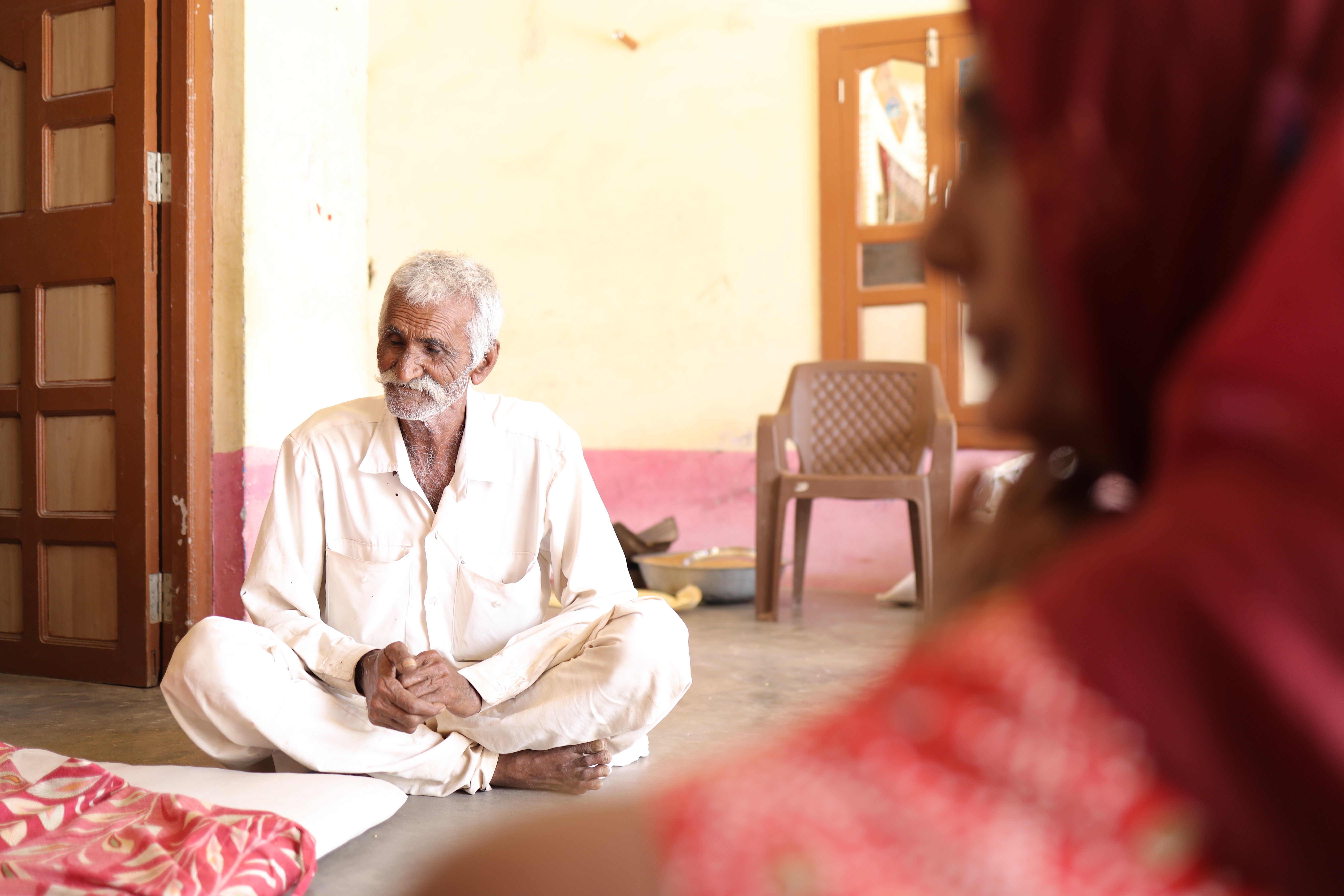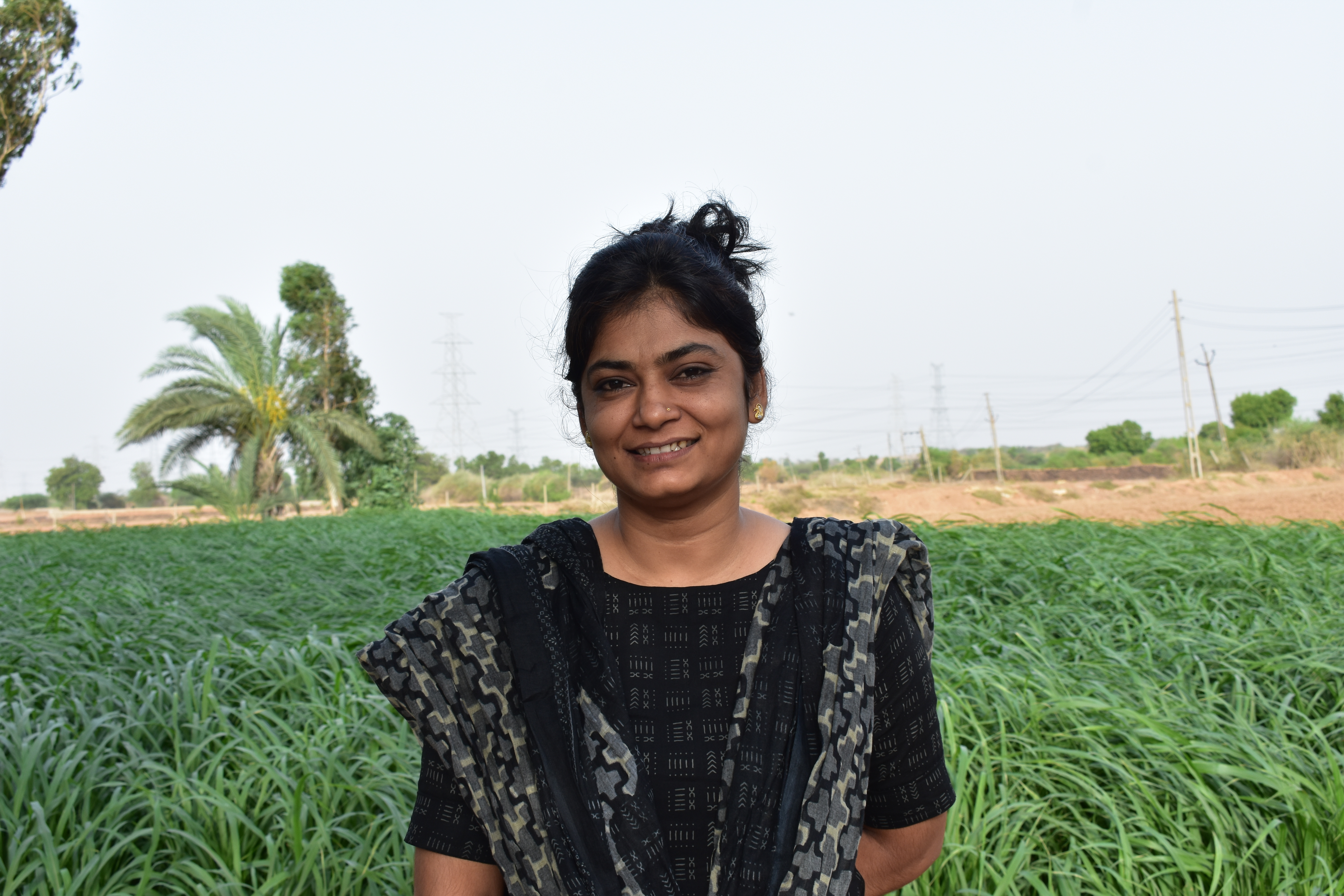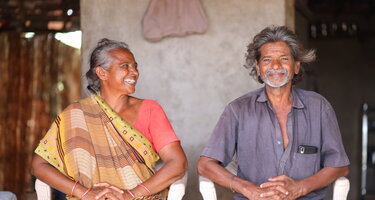En route to organic cotton: The impact of sustainable agriculture in Gujarat
In Gujarat's arid and challenging landscape, smallholder farming families are shaping the transition from traditional farming to organic cotton production. By collaborating with the initiative From Field to Fanshop, profound changes are possible. Local famers and their families participate in trainings and receive compensation for crop failures. The initiative also ensures the purchase of fixed quantities of cotton that is used for football fan merchandise. At the same time, it supports the next generation of cotton farmers through sports programmes and educational opportunities.
The transition to ‘cotton in conversion’ is a crucial step on the way to certified organic cotton. During this transition period, which can last up to three years, the soil must first be freed from the residues of chemical pesticides, which can lead to up to 40 per cent lower crop yields.
Without the possibility of achieving higher prices for certified organic cotton, farmers face major challenges. However, by guaranteeing purchase and compensating for crop losses, the initiative offers smallholder farmers the support they need to get through this difficult phase and build a more sustainable future.
Read more about the profound changes that this holistic initiative is bringing about in the participating communities here.
Kanjibhai and Jamnaben Bhojak: Switching to sustainable practices
Kanjibhai Gopalbhai Bhojak, a 70-year-old farmer from Ganeshpur, Gujarat, along with his wife Jamnaben Bhojak, are transitioning to cotton in conversion with the support of From Field to Fanshop. For generations, the family has worked on their own land, which includes 2.6 hectares of cotton. At first, Kanjibhai worries that the transition would lead to decreased harvests. But now, after participating in trainings and growing their knowledge about organic cotton farming, Kanjibhai and his family are convinced that certified organic cotton is the way ahead.
"Overall costs (input costs) have come down, especially now, because we do not spend on pesticides and fertiliser," Kanjibhai explains. The shift to organic cotton has not only reduced expenses but also improved soil health. “The soil is softer, holds more water, and I need fewer irrigations,” he notes. The quality of the crops that the family produces for their own consumption has also improved. His interest in learning is evident as he shares, “I have attended every single training under the programme when possible.”
Jamnaben adds, “I have taken a close look at the organic calendar and attended some trainings to learn about crops and understand soil nutrition and quality.” Despite challenges like floods and intense heat waves, the couple is committed to the project and envisions expanding its reach.

“I wish to continue with the project and hope to ensure that several more farmers are trained in this,” Kanjibahi says. He believes in the advantages of organic cotton farming and wants to inspire other farmers to also make the switch to sustainable practices with their long-term positive effects. His wife echoes this sentiment, hoping to see continued participation and improvement in practices by other female farmers.
Already, there are more farming families nearby that trust in organic farming practices:
Manjulaben und Narayanbhai Prajapati: Organic fertilisers and environmental protection
Manjulaben Narayanbhai Prajapati, who works alongside her husband Narayanbhai, has also embraced organic practices. “I do 75% of the work, including sowing, irrigation, weeding, and cotton picking,” she says. The couple’s efforts are focused on using natural inputs, which they’ve learned to make through project trainings.
Among other things, the trainings showed them how to make organic inputs such as Dashparni Ark, a mix of different leaves, ginger, and turmeric, which work as a natural pesticide and fertiliser. “We realised we can simply use the natural resources available to us”, Manjulaben says enthusiastically, which renders artificial fertilisers like urea or diammonium phosphates (DAP) unnecessary.
The benefits of these practices are already visible in their everyday lives: “Unnecessary expenses have reduced, and we wish to be associated with the project for a longer duration.” She also observes the increasing intensity of climate change effects and notes that there is a need to conserve natural resources. “We knew this growing up and generationally, and now, through the trainings, we have found a more standardised way of farming organically.”
The farmers are observing climate change in the shape of more intense floods and storms, as well as droughts. Another big challenge is the increasing heat, with temperatures rising as high as almost 50°C in summer 2024. These unusual heatwaves will make life harder for the farmers and their crops – but still, the Prajapatis remain committed to organic farming and environmental conservation.
Mina Vora: The benefits of organic standards
Mina Vora works for the farming cooperative Rapar and Dhrangadhra Farmers Producers Company Ltd, which supports farmers in their participation in the initiative From Field to Fanshop. She has witnessed firsthand the challenges and successes of the project. During our conversation, she highlights the project’s community-wide benefits: “We support farmers from sowing to selling, working with everyone in the community to improve livelihoods and lives.”
“Any sudden change is a challenge, whether in chemicals or fertilisers,” Mina explains. The transition to organic cotton is a considerable economic risk for low-income smallholder farmers. Therefore, it is particularly important to overcome hurdles such as reduced yield during the conversion period and to ensure ongoing support for farmers. Quality seeds and continuous support in maintaining organic standards are key strategies, she says.

Looking ahead: Social justice
The involvement of local communities in both organic farming and sports has changed the perspective of many participants. Their stories illustrate the profound impact of combining agricultural practices with broader community development goals and environmental goals. From improved farming techniques to enhanced social justice and personal growth, the journey towards a more sustainable and equitable future continues to unfold in Gujarat’s vibrant communities.
